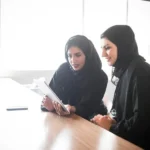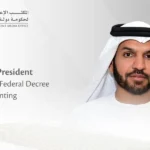Patients in the UAE are poised to gain from an innovative partnership between the Ministry of Health and Prevention (MoHAP) and the World Bank Group, focused on enhancing healthcare services nationwide.
A comprehensive study, titled “The Cost of the Most Common Diseases in the UAE,” will offer crucial insights into the financial burden of prevalent diseases. Utilizing accurate data, this initiative aims to develop healthcare policies that strategically allocate resources toward the most effective programs, ultimately improving the quality of care and benefiting patients both now and for future generations.
The study will evaluate the economic impact and calculate the costs associated with common diseases, aiding in the update of essential information needed for prioritizing healthcare financing in the UAE, as stated by the ministry in a press release.
“It aims to target resources toward the most impactful and efficient programmes, thereby enhancing the management of health resources and formulating strategies aligned with future health sector trends both locally and globally,” the ministry explained.
The agreement was signed by Dr. Amin Hussein Al Amiri, Assistant Undersecretary for the Health Regulation Sector at MoHAP, and Safaa El Tayeb El Kogali, the World Bank’s Country Director for the GCC countries. The signing event was attended by various officials, experts, and specialists from both the public and private sectors.
Sustainability of Health Financing
“Signing this MoU with the World Bank Group is a step in the right direction towards enhancing our strategic partnerships with global institutions,” said Dr. Hussain Abdul Rahman Al Rand, Assistant Undersecretary for the Public Health Sector.
“At MoHAP, we are committed to adopting scientifically based methodologies that support the effective planning and management of health policies and foster innovative practices.”
He emphasized that the study will be crucial in identifying primary cost drivers by analyzing data, sharing knowledge, and conducting an in-depth assessment of disease costs.
“With accurate, evidence-based insights, we can prioritise and focus on interventions that maximise the efficient use of health resources as well as better understand the factors influencing public health and associated costs, supporting sustainable health financing. The study will also enable more precise decisions on resource allocation and service development, guided by proactive plans that boost healthcare system efficiency. It will also reinforce the UAE’s leadership in adopting international best practices, ensuring a sustainable, high-quality healthcare system that enhances the well-being of the community,” Al Rand added.
Fruitful Partnerships
Meanwhile, Dr. Al Amiri stated: “The UAE healthcare system has made remarkable progress, yet we continue to forge valuable partnerships with international organisations to boost the competitiveness and adaptability of our health system. We will make every possible effort to realise the country’s priorities and the vision of our wise leadership, aimed at fostering a healthy and thriving society.”
He also praised the World Bank Group for strengthening constructive cooperation with the UAE in health and other critical areas contributing to sustainable development.
Enhancing Healthcare
El Kogali emphasized that the World Bank Group is dedicated to supporting all initiatives aimed at enhancing healthcare. “By leveraging technical expertise, we look forward to developing flexible health systems capable of making informed decisions that ensure resources are effectively directed to achieve optimal outcomes.”
She further noted that the World Bank is particularly interested in collaborating with the UAE to ensure that evidence and data are utilized more effectively in the development of healthcare financing policies, planning, and resource allocation.








